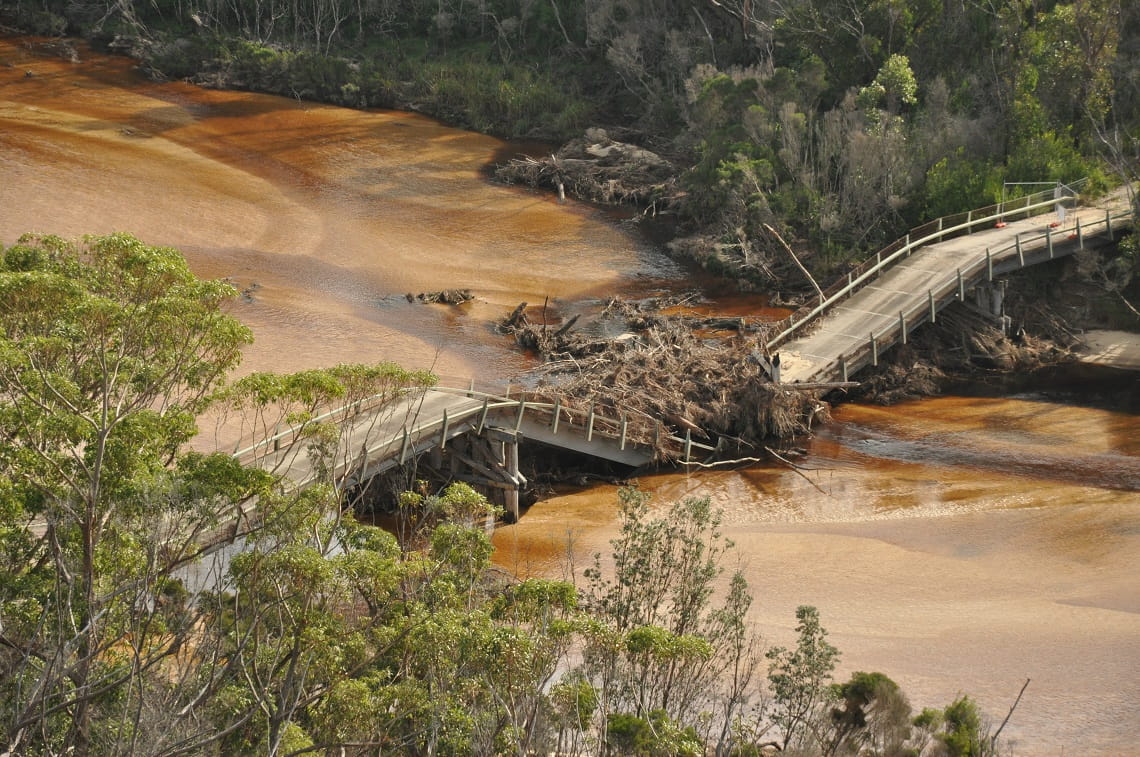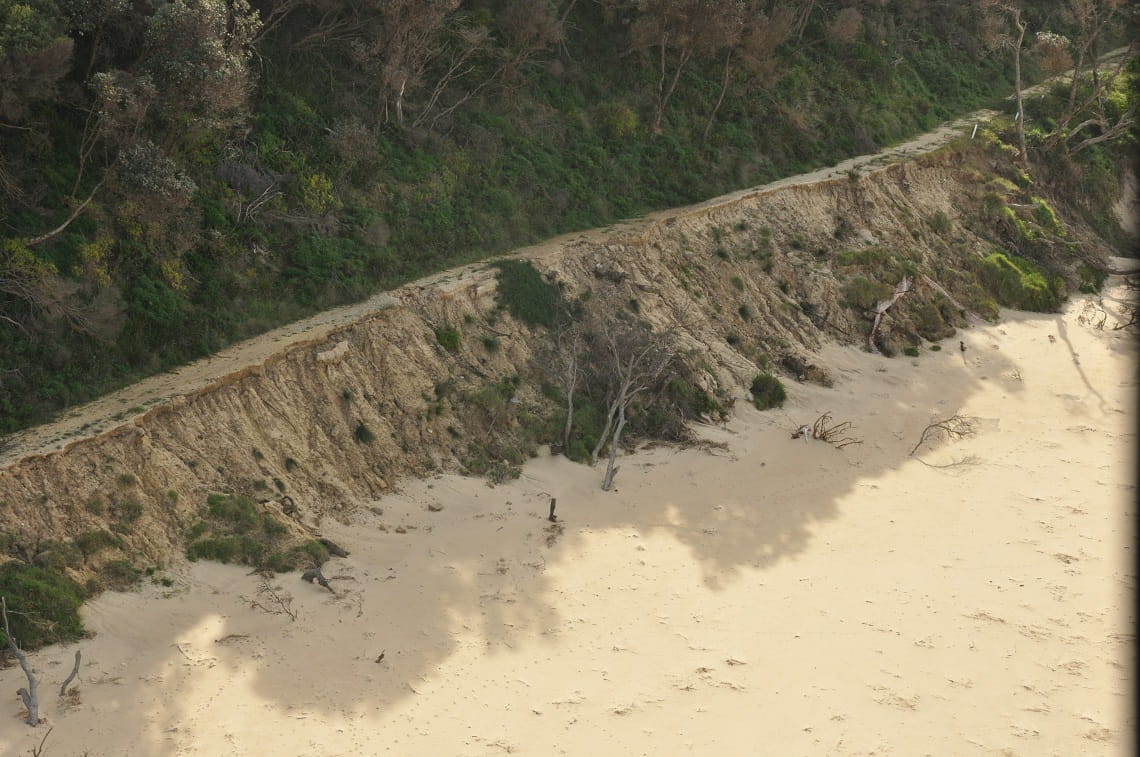Recovery works continue across Gippsland in the wake of multiple storm and flood events this past year.
Many parks, reserves, trails, camping spots and roads have been heavily impacted across the Gippsland region.
Most recently, storms and flash flooding in April impacted some 15 parks and reserves across a vast area stretching from Bairnsdale to Orbost, Cann River and up to the NSW border.
Sites impacted included Bemm River Scenic Reserve, Lake Tyres State Park, Cape Conran Coastal Park, Gippsland Lakes, Nyerimilang Historic Park and the Croajingolong, Coopracambra, Mitchell River, Lind, Alpine and Snowy River national parks.
Other affected places included Ewings Morass, MacLeod Morass and Lake Curlip State Game Reserves, Cann River Bushland Reserve and St Georges Plain Flora Reserve.
Wilsons Promontory National Park has also been heavily impacted by storm events and high winds.

Flood impact: Thurra River Bridge, Croajingolong National Park
Roads, tracks and visitor sites re-opened
Park Rangers continue to assess sites and restore access as soon as it is safe to do so, though unfortunately many sites have been impacted by successive flood events and have sustained significant damage. Many tracks and roads have since re-opened, however some require extensive repair works and are likely to be closed for some time.
"The wild weather and flooding caused landslips, coastal erosion, washed away tracks and had widespread impact on many assets including bridges, amenities, crossings, camping spots, visitor sites and the broader river catchment," said Michael Treanor, District Manager.
"The scale of damage combined with the remote nature of some sites has made access and the recovery task challenging. Despite these trying conditions, Park Rangers continue to make solid progress, clearing roads and access tracks and re-opening visitor sites and campgrounds once safe."
At many areas including Croajingolong and Morwell national parks, Park Rangers have actioned extensive hazardous tree removal and track reopening. There has also been extensive track work at Tarra-Bulga National Park.
In Central Gippsland, some 80km of tracks have been assessed and treated for hazardous trees by specialist arborists.
At Wilsons Promontory National Park, wind gusts of around 115km per hour hit last year, and erosion and tree hazards severely impacted much of the park's 190kms network of walking tracks.
Following extensive recovery work, many tracks and camping sites have re-opened at The Prom, and planning is underway to replace the badly damaged Sealers Cove boardwalk. This walk needs its entire two kilometres of boardwalk replaced, with its remote location making the recovery task challenging and labour-intensive. As part of make-safe works, careful consideration is being given to how this track is replaced as the hydrology in the area has changed in recent years.
You can check for any updated changes affecting parks and reserves by going directly to the individual park page on this website, visit the Changed Conditions page or contact the Parks Victoria Information Centre on 13 1963.

Coastal erosion, Point Hicks, Croajingolong National Park, April 2022






